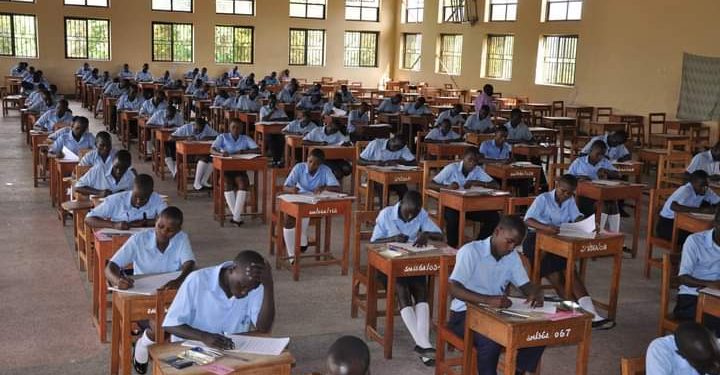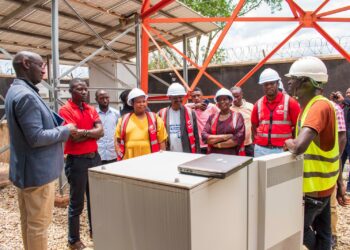The recent unveiling of the 2024 examination timetable by the Uganda National Examinations Board (UNEB) represents a troubling chapter in Uganda’s educational landscape. As the board attempts to integrate the New Lower Secondary Curriculum (NLSC) while managing transitional examinations, it raises alarming questions about the efficacy, fairness, and overall execution of this dual approach. While UNEB’s stated commitment to security and holistic assessment may appear commendable, the inherent challenges associated with this poorly conceived transition demand serious scrutiny.
UNEB’s announcement that 1,320,400 candidates have registered for the Four Examinations (4Es) reflects a staggering increase of 7.8% from the previous year, underscoring a misguided belief in the education system. Particularly egregious is the astonishing 28.4% rise in candidature for the Uganda Advanced Certificate of Education (UACE), which reveals a troubling trend of overinflation rather than genuine confidence. This alarming increase obscures the profound underlying issues that threaten to compromise the quality of the examination process. The rise in candidates, especially those enrolled under the transitional curriculum, presents logistical nightmares for UNEB, including the urgent need for adequate supervision and resource allocation that they clearly have not prepared for.
The introduction of the NLSC alongside the transitional examination demonstrates UNEB’s desperate attempt to accommodate diverse educational needs without any coherent plan. This dual system could provide opportunities for students who either missed prior examinations or require reexamination, but it raises critical concerns regarding the fairness and validity of assessments. Are students adhering to the old curriculum at a significant disadvantage? Will the glaring discrepancies in evaluation methods between the two curricula lead to inequities that will irreparably harm candidates’ academic trajectories?
Moreover, the implementation of the NLSC introduces new subjects and assessment modalities, such as Ugandan Sign Language (USL) and Physical Education (PE). While the inclusion of these subjects may superficially signify a progressive step toward inclusivity and an expanded educational offering, it simultaneously imposes additional burdens on educators and institutions that are woefully unprepared and under-resourced to deliver these programs effectively. The variability in the quality of instruction for these new subjects threatens to exacerbate existing disparities within the education system, ultimately undermining student performance.
UNEB’s insistence on security and integrity within the examination process is a farce. With the skyrocketing incidents of examination malpractice in Uganda, the board’s hollow appeals to stakeholders to uphold examination integrity ring utterly hollow. It is imperative to question whether UNEB has implemented adequate safeguards to deter malpractice, especially given the high stakes involved for candidates. The statement by UNEB Executive Director Dan N. Odongo, regarding the theme “Embracing security and holistic assessment of learners in a dynamic environment,” is little more than a meaningless slogan that requires concrete actions rather than empty rhetoric.
Candidates must be made acutely aware of the consequences of malpractice, including potential cancellation of results or disqualification. This situation raises a crucial question: how does UNEB plan to ensure that all candidates truly grasp these risks and understand the significance of maintaining academic integrity? It is apparent that there is a gross oversight in effectively communicating these crucial matters.
The incorporation of Continuous Assessment (CA) scores into the examination grading process marks a substantial deviation in evaluating student performance. Mandating that schools submit CA scores by October 30, 2024, introduces an overly complicated approach that attempts to assess students’ abilities beyond traditional examinations. However, this methodology raises serious concerns regarding the consistency and fairness of assessments across diverse educational institutions, particularly in resource-constrained environments, which many schools in Uganda epitomize.
Furthermore, there exists the unsettling risk that schools will prioritize CA preparation over the holistic development of students, leading to a narrowed curriculum focus that ultimately does a disservice to learners. Will UNEB ensure that schools adhere to standardized assessment practices that genuinely reflect student capabilities? It appears unlikely, given their track record of inadequate oversight and support.
As UNEB tries to emphasize, the successful execution of the 2024 examinations hinges on the collective engagement of all stakeholders, including candidates, parents, educators, and heads of centers. However, this misplaced focus on collective responsibility serves to deflect attention from UNEB’s failures in providing the necessary guidance and support for navigating the complexities of the new curriculum and examination processes. Stakeholders must grapple with the significant burdens placed upon them without any clear direction from UNEB.








Discussion about this post